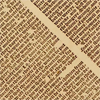БАЈРОЈТСКЕ СВЕЧАНОСТИ КАО ПОЉЕ ЗА ПРИМЕНУ БЕРГЕРОВЕ И ЛУКМАНОВЕ ТЕОРИЈЕ СОЦИЈАЛНE КОНСТРУКЦИЈE РЕАЛНОСТИ
BAYREUTHER FESTSPIELE AS A FIELD FOR APPLICATION OF PETER BERGER’S AND THOMAS LUCKMANN’S THEORY OF SOCIAL CONSTRUCTION OF REALITY
Author(s): Dragana Jeremić MolnarSubject(s): Theatre, Dance, Performing Arts, Evaluation research, Social Theory
Published by: Српско социолошко друштво
Keywords: Stage festival in Bayreuth; Festival theatre in Bayreuth; reality; reality of everyday life; symbolic universe; institutionalization; finite province of meaning; subuniverse of meaning;
Summary/Abstract: The Stage festival in Bauyeuth (Bayreuther Festspiele), established in 1876. by German composer Richard Wagner (1813–1883), is, even nowdays, a complex and unique phenomenon which continually attracts the attention of scholars from various (mainly humanistic and social) scientific fields. In meny different methodological approaches to Bayreuther Festspiele, including those made by social scientists, one can not find the application of the sociological theory of Peter Berger and Thomas Luckmann. However, one has to bare in mind the important fact that Richard Wagner founded his completely inovative festive institution mainly in order to carry out and to spread his regenerative Weltanschauung – already formulated in his numerous theoretical writings and incurporated into his musical dramas. The fact that Wagner’s Weltanschauung was based on the idea of changing the reality of everyday life by constructing the new reality, is of equall importance. Considering all this, it becomes appropriate to explain Wagner’s motivation for establishing the stage festival, as well as his idea of festival, from the standpoint of the theory of social construction of reality.
Journal: Социолошки преглед
- Issue Year: 40/2006
- Issue No: 3
- Page Range: 433-456
- Page Count: 24
- Language: Serbian

